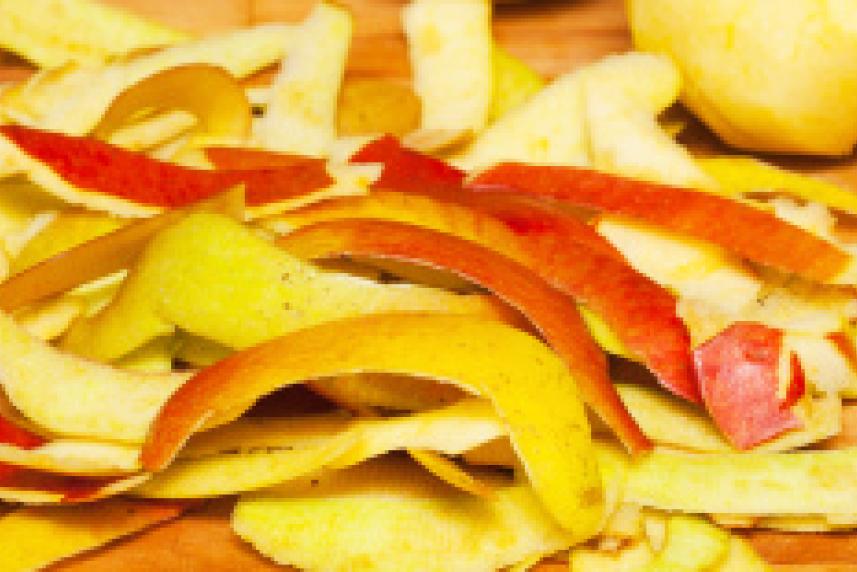Eight foods to stop wasting
Save money and the planet by hanging onto these food scraps.

Apple peels and celery leaves may frequent the trash bin along with 50% of the world’s food supply, but they’re worth salvaging. Make leftover foods into tasty salsas, seasonings, and appetizers to avoid extra trips to the grocery store and mind your carbon footprint. These eight ingredients just might be the pièce de résistance of your next meal.
Potato Skins
Peeling potatoes is a waste problem and removes goodies such as fiber and polyphenols (the same healthful compounds in olive oil). Use the whole spud and make baked potato skins or skin-on mashed potatoes.
Broccoli Stems
Broccoli stems are crammed with vitamins C and K to support strong bones, and they’re easy to upcycle. Try them in dumplings, broccoli stem pesto, or grilled cheese sandwiches.
Apple Peels
A day of baking pies can lead to a mound of apple peels. For a quick and easy snack, sprinkle the peels with cinnamon and brown sugar and roast on high for about 12 minutes.
Celery Leaves
Use celery leaves as seasoning in meat dishes, soups and stews. Try them in a turkey sausage omelet, or rustic potato-leek soup. Or, toss them with pasta primavera for a mild, anise-like flavor similar to fennel.
Carrot/Radish Tops
Leafy greens are some of the healthiest foods on earth—why get rid of them? Add carrot and radish leaves to salads and stir-fries, or sample carrot top salsa.
Watermelon Rinds
Leftover watermelon rinds run wild in summer, just in time for pickling season. Like its cousin the cucumber, watermelon rind makes A+ pickles.
Shrimp Shells
Shrimp shells are completely edible and can be used to flavor soups. The Peruvian stew Chupe de Camaronesextracts its fragrant broth from shrimp shells and corncobs.
Bread Ends
That lone piece of bread at the end of the loaf deserves a second life in veggie burgers, croutons, and panzanella. Getting creative with that stray slice helps it stay out of pollutant-leaching landfills.
Compost, Don’t Dump!
Discarded food contributes to greenhouse gases, sludge, and global hunger, but it doesn’t have to. Compost at home, or donate table scraps to a local garden center to lessen pollution and enrich soil. Waste not, want not!


